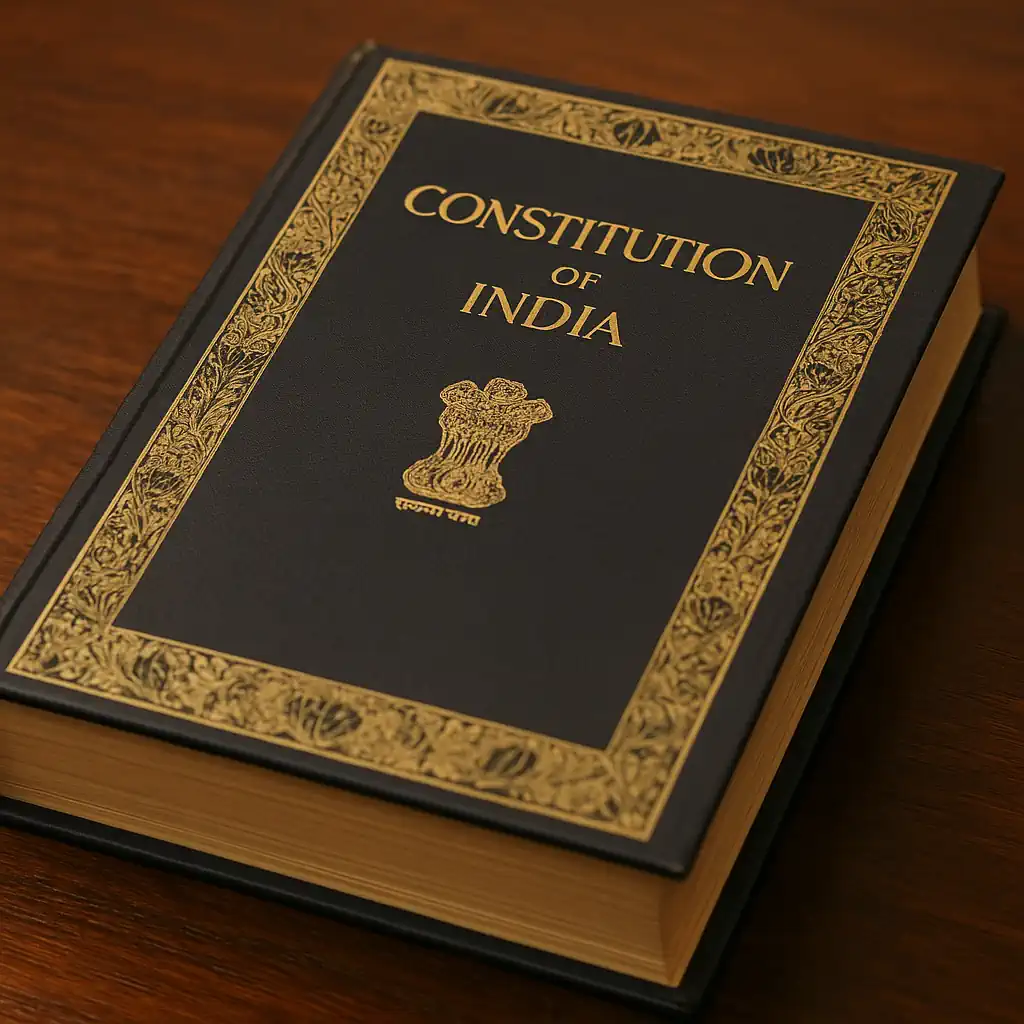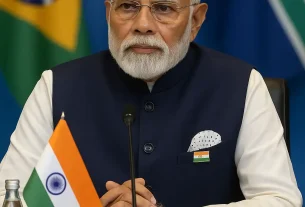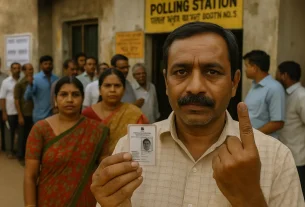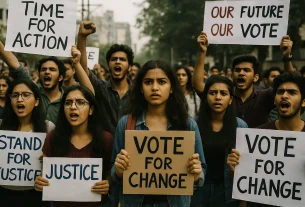I’ve sat in courtrooms where lawyers in black coats quoted the Constitution like scripture. I’ve also listened to rickshaw drivers curse politicians for “not following the book.” That’s India for you — the Constitution isn’t just a legal text. It’s a living, breathing presence in daily conversations. It’s both revered and argued over. It’s our framework and our battlefield. And lately, the arguments around it have grown louder. What changes does it need? Who has the right to change it? And at what cost?
The Constitution as a Living Document
When B.R. Ambedkar and his colleagues drafted the Constitution in 1950, they didn’t pretend it was perfect. They made it amendable. They knew India was too vast, too diverse, too unpredictable for one frozen script. Over the years, that flexibility has been tested. The Constitution has been amended more than a hundred times — to expand rights, to tweak powers, to adapt to crises.
But here’s the thing: every amendment carries weight beyond its words. Each one signals what kind of country India is becoming. And that’s why today’s debates around reforms feel so urgent.
Where the Cracks Show
Talk to ten different Indians about what should change in the Constitution, and you’ll get ten different answers. But the main debates tend to circle around these areas:
-
Federalism. Should states get more power, especially over resources and language rights? Or should the center hold stronger control to ensure national unity?
-
Parliamentary system. Some argue India should move toward a presidential style to avoid constant coalition politics. Others see that as a step toward authoritarianism.
-
Judiciary. The Supreme Court’s powers of judicial review — its ability to strike down laws — are admired by some, criticized by others as “judicial overreach.”
-
Fundamental rights vs. duties. Should rights like free speech remain absolute, or do they need tighter restrictions in the age of digital misinformation? At the same time, should duties — civic responsibilities — be expanded and enforced?
-
Reservation policies. Affirmative action has been central to India’s social justice agenda. But debates rage on: Should caste-based reservations continue indefinitely? Should economic criteria take precedence?
Each of these debates isn’t just academic. They’re arguments that play out in villages, universities, WhatsApp groups, and court halls.
A Timeline of Amendments That Shaped India
If you look at the history of constitutional amendments, you see a map of India’s struggles.
| Amendment | Year | What It Did | Legacy Today |
|---|---|---|---|
| 42nd | 1976 | Strengthened central power during Emergency, curtailed judicial review | Still remembered as the “mini-Constitution,” a cautionary tale |
| 44th | 1978 | Restored freedoms taken away during Emergency | Reinforced the role of rights in democracy |
| 73rd | 1992 | Empowered Panchayati Raj institutions | Deepened grassroots democracy |
| 101st | 2016 | Introduced Goods and Services Tax (GST) | Rewired center-state fiscal relations |
Each of these wasn’t just a technical change. They altered the way power flowed between citizen, state, and center.
The Federal Question
One of the hottest debates right now is federalism. States like Tamil Nadu, Kerala, and Telangana argue that too much power is concentrated in Delhi — whether it’s tax revenues or cultural narratives. Their demand is simple: let states control more of their destiny.
On the other side, the central government insists that unity requires strong central oversight, especially in areas like security and economic policy. The tension is visible in every GST council meeting, every language policy debate, every fight over resource allocation.
If you’ve ever attended a state-level protest in Tamil Nadu or Karnataka, you’ll hear this frustration in raw slogans: “Delhi doesn’t understand us.” The Constitution is the referee in this fight — but the referee itself is under scrutiny.
Technology, Social Media, and Free Speech
Another front is digital freedom. The Constitution guarantees free speech, but it was written in a time when “speech” meant newspapers, pamphlets, town square rallies. Today, a teenager in Lucknow can reach millions with a viral tweet.
Should the same protections apply? Or should there be stricter curbs to fight fake news, hate speech, and online radicalization? Governments argue for regulation. Youth activists argue that’s censorship in disguise. The courts, once again, are left to interpret a 1950s promise in a 2023 reality.
The Reservation Dilemma
Few constitutional issues stir as much emotion as reservations. For many marginalized groups, caste-based quotas in jobs and education are lifelines — the only way to balance centuries of exclusion. For others, especially among economically weaker sections of forward castes, they feel unfair.
The recent introduction of the 10% reservation for the Economically Weaker Sections (EWS) was historic. It tilted the balance toward economic criteria, not just caste. But will that expand further? Will it dilute caste-based affirmative action? The Constitution is the battlefield where these battles are fought — and the future is far from settled.
The Call for a Presidential System
Every few years, the debate resurfaces: should India abandon its Westminster-style parliamentary system? Supporters of a presidential system argue it would give stability — no more fragile coalitions, no more horse-trading. Opponents counter that concentrating so much power in one person is dangerous in a country as diverse as India.
This isn’t a new debate. But in today’s era of strong personalities dominating politics, it feels sharper. Would India’s democracy survive better with stronger institutions, or stronger individuals? The Constitution doesn’t just answer that question — it defines it.
How Young Indians See the Constitution
One thing that stands out is how the younger generation engages with these debates. Many don’t read the Constitution line by line. But they feel its weight. When students protest internet shutdowns, they’re invoking Article 19 on free speech. When farmers march for MSP guarantees, they’re invoking the spirit of Article 21 on the right to life.
I’ve spoken to law students who call the Constitution “our manual of rights.” I’ve also spoken to young activists who say, “It’s being bent too often.” That mix of reverence and suspicion is very Gen Z India — idealistic but wary.
India and the Global Comparison
India isn’t debating in isolation. Around the world, constitutions are under strain. The US Constitution, centuries old, struggles with modern issues like gun control and digital privacy. Latin American countries like Chile have attempted complete rewrites. South Africa’s post-apartheid constitution is hailed as one of the most progressive — but still wrestles with inequality.
India’s strength is its ability to adapt without rewriting from scratch. But that adaptability depends on whether citizens believe reforms serve democracy, not power grabs.
The Road Ahead
So what does the future hold? If you read think tanks or listen to parliamentary debates, you’ll hear possibilities:
-
More devolution of power to states.
-
Stricter definitions of free speech in the digital era.
-
Expansion of reservations based on new categories.
-
Judicial reforms to streamline case backlogs.
-
Greater recognition of environmental rights as fundamental rights.
But here’s the truth: the Constitution’s future won’t be decided only in Parliament or the Supreme Court. It’ll be shaped by street protests, by WhatsApp debates, by student elections, by the quiet anger of farmers or workers. That’s what makes it alive.
Final Reflections
Whenever I think about the Constitution’s future, I return to Ambedkar’s words in 1950. He said the Constitution is as good as the people who implement it. That’s still true. The debates about reforms are really debates about ourselves — how we see fairness, power, justice, identity.
India doesn’t need a perfect Constitution. It needs one that bends without breaking, one that adapts without losing its soul. And so far, despite all the shouting, all the amendments, all the crises, that’s what it has managed to be.
The question is whether we, the people, will keep it that way.
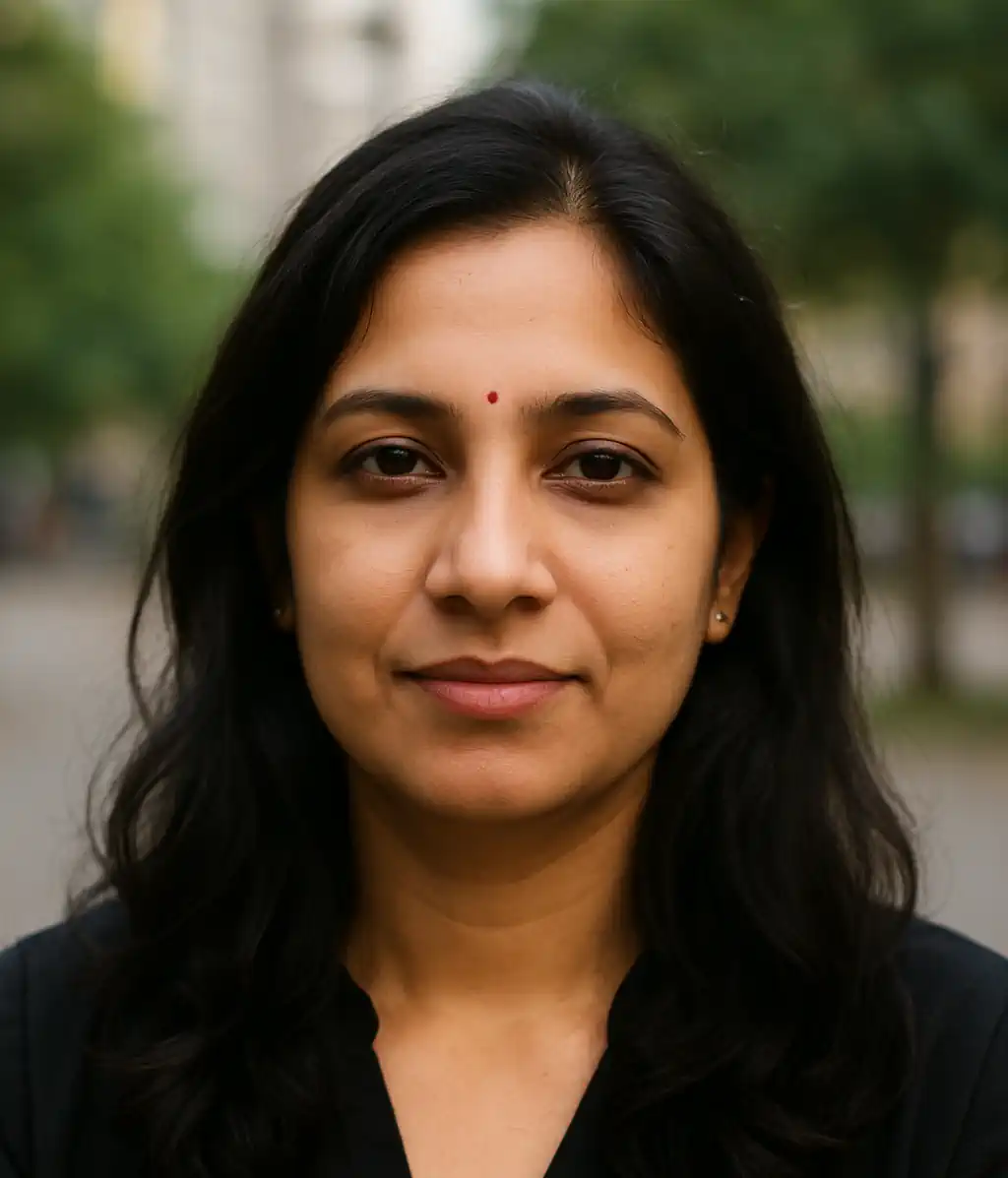
Ajanta Mehra is a journalist and cultural commentator with a passion for exploring India’s fast-changing landscape. From politics and business to cinema and social trends, Ajanta brings a sharp, human voice to every story. She believes good writing should feel like a conversation — insightful, honest, and rooted in real life. When she isn’t writing for Desi Today, you’ll probably find her reading regional literature, sipping masala chai, or chasing down the next untold story.


